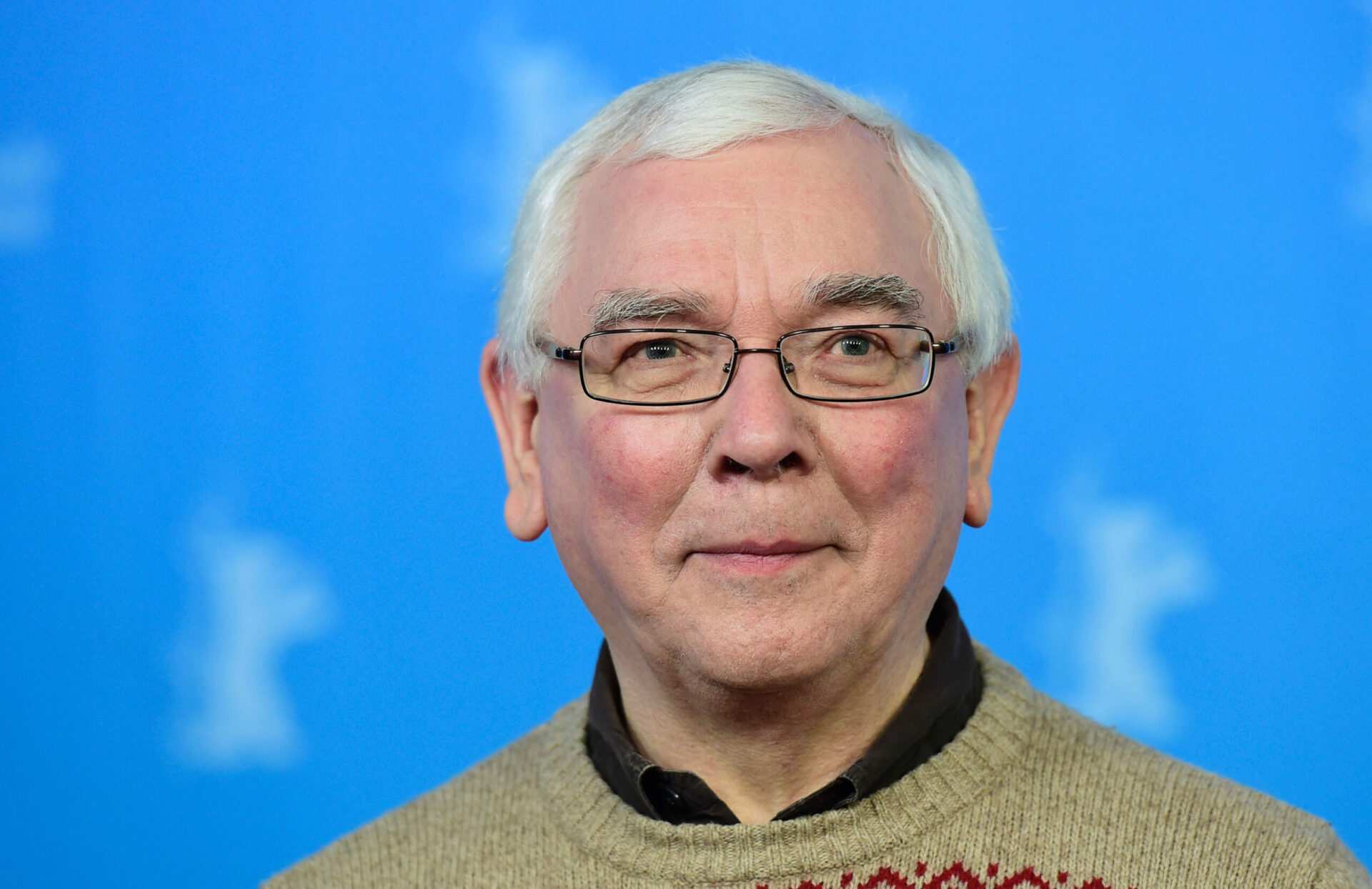On 22 December, two days after jubilant fans thronged the streets of Buenos Aires to welcome their World Cup-winning football team, a very different crowd took over Avenida 9 de Julio, a main artery of the Argentine capital, to demand a “Christmas Without Hunger”. They camped out in front of the Ministry of Social Development, calling for food for soup kitchens and decrying cuts to social programmes.
Argentina is Latin America’s third-largest economy. It is an agricultural powerhouse. It is a key producer and exporter of soybean, corn, and wheat. Yet a growing number of Argentinians are struggling to eat and falling into poverty.
Around 17 million people, or 43% of the country’s 46 million population, are living below the poverty line, and that number could rise to 50% without more support, said a report published in December from the Social Debt Observatory at the Catholic University of Argentina.
Up-to-date data on food insecurity is difficult to come by, but the latest UN report, based on surveys in 2021, found that more than one in three reduced the quantity and quality of the food they eat and skipped a meal, while one in eight were unable to eat on one or more days.
“These indicators have doubled in the last five years,” Jorge Meza, interim representative in Argentina and Uruguay for the UN Food and Agriculture Organization (FAO), told The New Humanitarian.
It is highly likely hunger levels have increased since. Argentina ended 2022 with prices climbing 95%, the highest in three decades even in a country inured to economic instability. On 3 February, the government announced a new 2,000 peso bill – double the previous largest note, yet only worth $5 on the alternative markets most people use. Officially, it is equivalent to $11.
Economists have blamed the latest crisis on a combination of a lack of strategic vision by policymakers, a history of distorted agricultural policies, three consecutive years of drought, and rising global prices.
But growing poverty and inequality, the industrialisation of food production focused on exports, the deterioration of agricultural ecosystems, and Argentina’s high vulnerability to climate change also play significant roles, said Rikke Olivera, a senior technical specialist with the UN’s International Fund for Agricultural Development (IFAD). Nutritious diets are costly partly because specialisation and industrialisation “fails in providing accessible, affordable, and diverse food to the local Argentinian food systems”, she added.
As the country prepares for polls in October, Valeria Piñeiro, an Argentine economist and acting head of Latin America for the International Food Policy Research Institute (IFPRI), is asking the international community not to neglect Argentina and Latin America. In the decade up to 2015, the region was hailed for outperforming others in reducing hunger and poverty, but it saw a 30% jump in the number of hungry people between 2019 and 2021.
Economists have blamed the latest crisis on a combination of a lack of strategic vision by policymakers, a history of distorted agricultural policies, three consecutive years of drought, and rising global prices.
“It’s hard to get funding or support from donors for the region because most people have the perception it only has middle-income countries and think they’re doing fine,” Piñeiro told The New Humanitarian. “But [it] includes a number of poor countries like Haiti or Guatemala, and the region is not doing fine. They’ve been really affected by all the three Cs – conflict, COVID-19, and climate change.”
‘A vicious cycle’
“At the beginning of the year, with 6,000 or 7,000 pesos, you could buy enough for 15 days,” said Victoria Crapanzano, a 34-year-old nutritionist and divorced mother-of-two in Buenos Aires. “Now, you buy three things and spend 15,000 pesos on a purchase that is enough for maybe a week.”
Irupe, a 41-year-old photographer and journalist who declined to give her surname, told The New Humanitarian she and her friends are looking for second jobs because they’re unable to make ends meet.
“The current situation is a growing challenge. Hunger is worsening,” said Lorena Troncoso, executive director of Fundación Banco de Alimentos Mendoza, a food bank operating out of Mendoza, the heart of Argentina’s world-famous wine region.
Set up in the aftermath of Argentina’s worst-ever financial crisis in 2001, it supports 80 local organisations serving more than 37,000 people. Another 16 groups with 7,500 people in need are on the waiting list.
The food bank is helping 5,000 more people now compared to 2019, but the resources haven’t kept up. Food donations have remained the same, but “not enough to meet the demand we have”, Troncoso said.
Piñeiro called what is happening “a vicious cycle”. The government has set price controls to keep a lid on food costs, but inflation continues to rise because it is also printing money to cover its chronic fiscal deficit.
“Inflation is going up, but because you have a big informal sector their wages are not catching up. That’s why an increasing number of people are not able to afford food,” said Piñeiro, who is also concerned about longer-term impacts on nutrition as people turn to lower quality diets.
Argentina, once one of the wealthiest nations in the world, already has some of the highest levels of overweight and obesity in South America. Nearly 13% of children under five are overweight and more than one in four adults (28.3%) are obese, compared to the regional average of 8.2% and 23% respectively.
“This indicates that food is not balanced or diets are not healthy, at least for a quarter of the country’s population,” said the FAO’s Meza.
But it is “much more expensive” to eat better, protested Maricel Santin, a 44-year-old writer who has been struggling with various health issues, including allergies and stomach problems.
With a husband who is also a writer, their income is unstable and she lives in constant fear of becoming jobless, an anxiety she believes she is passing on to her 14-year-old daughter: “The other day we celebrated my daughter’s birthday in a little bar, and I realised that she didn’t want to ask for anything.”
Can agroecology help?
Proponents say agroecology, which applies ecological principles to agriculture by shunning synthetic fertilisers and pesticides, caring for the soil, and placing greater weight on social values and local knowledge could be a solution to the twin problems of rising prices and low nutrition.
In La Plata, a city some 50 kilometres southeast of Buenos Aires and known as the country’s horticultural belt, 48-year-old Eulalia Ortega gave up growing flowers and turned to producing fruits and vegetables using no chemicals, primarily to improve her ex-husband’s deteriorating health.
“The poison made him very ill. He had an allergy in his eyes. He coughed. Every time he sprayed poison, he had this problem,” Ortega told The New Humanitarian during an afternoon break from farm work.
However, the switch is also helping her weather the hyperinflation pushing food out of reach of many Argentinians.
“We don’t buy any vegetables. We eat everything we grow,” she said. “Recently, things are more difficult, whether you use agroecological or conventional [methods].”
Finances are still tight, especially now that the task of looking after the farm and their four children fell to her. They have cut back on meat, potatoes, and regular family barbecues.
But their income is steady and “still enough to be able to eat and live well”, added Ortega, who sells her produce directly and through stores run by UTT, which stands for Unión de Trabajadores de la Tierra (The Union for Rural Workers).
UTT has 380 points of sale across the country and a membership of 22,000 families. It started encouraging farmers to practise agroecology in 2013. For Santin, the writer, this is the one place she goes for healthy affordable food, when her health allows. “At UTT, the prices are really friendly,” she said. “I find the price-quality ratio convincing.”
Irupe, the photographer, is also a fan.
Hundreds of UTT families using nearly 850 hectares of land have made the switch, including Ortega and her neighbours Javier Paniagua, 41, and Josué Trujillo, 43, all of whom said they used to produce pesticide-laden flowers.
Like Ortega’s husband, Bolivia-born Trujillo and his brothers said they suffered side-effects from the use of pesticides. They had rashes on their bodies, and their skin used to burn when they showered, recounted Trujillo.
The change has been both physically and financially beneficial, he said.
“In the conventional sector, the cost is double or triple because of the products used. A carafe of bromide (pesticide) for two greenhouses costs around 140,000 pesos. It is very expensive. In agroecology, we make the [alternatives] ourselves,” he said, sitting in the vegetable storage area of his farm.
Trujillo now produces more than a dozen vegetables all year round, which means he has income throughout the year. Their own diet has also become more varied, he said.
Paniagua, originally from Paraguay, now trains other farmers. He said he was driven by a desire to produce food that is healthy for both consumers and farmers.
“Doctors tell you to eat fruits and vegetables, but how these foods are produced is another matter,” he said, sipping on a mate, a traditional Argentinian herbal drink.
“Agroecology is diverse – you have to care about everything. You are living on the same planet – you have to take care of the soil, the water, the environment, yourself, and others.”
But for all its promise, agroecology in Argentina is still small-scale. Only 150 of the 6,500 farming families in La Plata are engaging in agroecology, said UTT. And according to the latest agricultural census published in 2021, the same is true for only 2,300 farms out of nearly 250,000 holdings across Argentina.
This could change in the future. In 2022, IFAD started a programme with the Argentine government to encourage small-scale farmers to adopt agroecological practices and sell their produce directly to consumers.
Difficult future ahead
For decades, Argentina relied heavily on farming for export earnings – agricultural products accounted for nearly 66% of total exports in 2020, data from the World Trade Organization showed.
But experts are warning that this may be difficult to sustain, especially in light of climate change, and because government policies are choking the sector and will continue to further drive up the country’s hunger and poverty levels.
“The keyword to explain [Argentina’s] economic problems is distortions,” said IFPRI’s Piñeiro.
She pointed to a multitude of measures – export restrictions, subsidies, quotas, price caps, and different export taxes for different products and commodities – that make it impossible for farmers to have a clear idea of their future.
“You’re making the producers decide which commodity to produce, and how much of it, based on all these constraints that are imposed on them,” she said. “And these constraints aren’t even stable. They change quite frequently.”
Eliminating these distortions could go a long way towards reviving the sector, and should be done fast because productivity is already going down and will only worsen with climate change, she added.
Droughts are already slashing the country’s agricultural productivity, but losses could worsen if they become more frequent and severe, sowing trouble not only in Argentina but also in other countries that depend on its production.
Argentina’s model of intensive, industrial agriculture is also contributing to global warming. Agriculture, livestock, forestry, and other land use are responsible for 39% of the country’s greenhouse gas emissions, according to the World Bank. In addition, farming is a primary cause of 22% forest loss from 1990 to 2015, the OECD said.
The National Agricultural Technology Institute (INTA) has also warned that monoculture, changes in land use, and overgrazing in dry regions are taking a toll on soils that are crucial for food production.
For vegetable farmers like Ortega, Paniagua, and Trujillo, policymakers need to stop seeing food just as a commodity to be traded and sold. “The way in which food is being produced… in which we are feeding ourselves, is very bad,” said Paniagua.
Natalia Favre reported from Buenos Aires. Thin Lei Win reported from Turin, Italy.
Edited by Andrew Gully.





